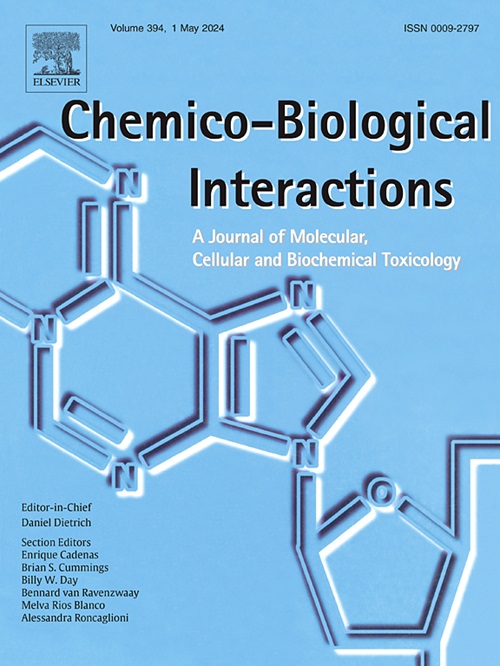PP2A attenuates α-amanitin-induced liver injury by promoting autophagy and inhibiting apoptosis in mouse models
IF 4.7
2区 医学
Q1 BIOCHEMISTRY & MOLECULAR BIOLOGY
引用次数: 0
Abstract
Poisoning caused by the mushroom toxin α-amanitin accounts for ∼90 % of food poisoning deaths resulting from mushrooms in China. However, Drosophila melanogaster uses PP2A to mitigate effects of α-amanitin. Our objectives were to test the hypothesis that modulation of PP2A protects mammals against deleterious effects of α-amanitin. In in vitro experiments, α-amanitin significantly suppressed both gene and protein expression of PP2A. Inhibiting PP2A promoted apoptosis induced by α-amanitin while suppressing autophagy. In vivo α-amanitin increased liver coefficient and AST/ALT indexes, plus caused pathological changes, ultrastructural alterations, TUNEL-positive cells, and Cleaved-caspase-3 expression. Inhibiting PP2A activity worsened these end points, but increasing PP2A activity lessened them. Furthermore, α-amanitin reduced feed intake and body weight while increasing health scores and causing concentration-dependent mortality in mice. In contrast, enhancing PP2A significantly mitigated α-amanitin-induced effects on health with 100 % survival. In conclusion, targeting PP2A is a novel therapeutic approach to mitigate α-amanitin toxicity.
在小鼠模型中,PP2A通过促进自噬和抑制细胞凋亡来减轻α-amanitin诱导的肝损伤。
在中国,由蘑菇毒素α-amanitin引起的中毒占由蘑菇引起的食物中毒死亡的90%。然而,黑腹果蝇使用PP2A来减轻α- amantin的作用。我们的目的是验证PP2A的调节保护哺乳动物免受α- amantin的有害影响的假设。在体外实验中,α-amanitin显著抑制PP2A基因和蛋白的表达。抑制PP2A可促进α-amanitin诱导的细胞凋亡,抑制自噬。体内α-amanitin增加肝脏系数和AST/ALT指标,并引起病理改变、超微结构改变、tunel阳性细胞和Cleaved-caspase-3表达。抑制PP2A活性使这些终点恶化,而增加PP2A活性则使其减轻。α- amantin降低了小鼠的采食量和体重,增加了健康评分,并导致浓度依赖性死亡率。相比之下,增强PP2A可显著减轻α-amanitin诱导的健康影响,存活率为100%。总之,靶向PP2A是一种减轻α- amantin毒性的新治疗途径。
本文章由计算机程序翻译,如有差异,请以英文原文为准。
求助全文
约1分钟内获得全文
求助全文
来源期刊
CiteScore
7.70
自引率
3.90%
发文量
410
审稿时长
36 days
期刊介绍:
Chemico-Biological Interactions publishes research reports and review articles that examine the molecular, cellular, and/or biochemical basis of toxicologically relevant outcomes. Special emphasis is placed on toxicological mechanisms associated with interactions between chemicals and biological systems. Outcomes may include all traditional endpoints caused by synthetic or naturally occurring chemicals, both in vivo and in vitro. Endpoints of interest include, but are not limited to carcinogenesis, mutagenesis, respiratory toxicology, neurotoxicology, reproductive and developmental toxicology, and immunotoxicology.

 求助内容:
求助内容: 应助结果提醒方式:
应助结果提醒方式:


